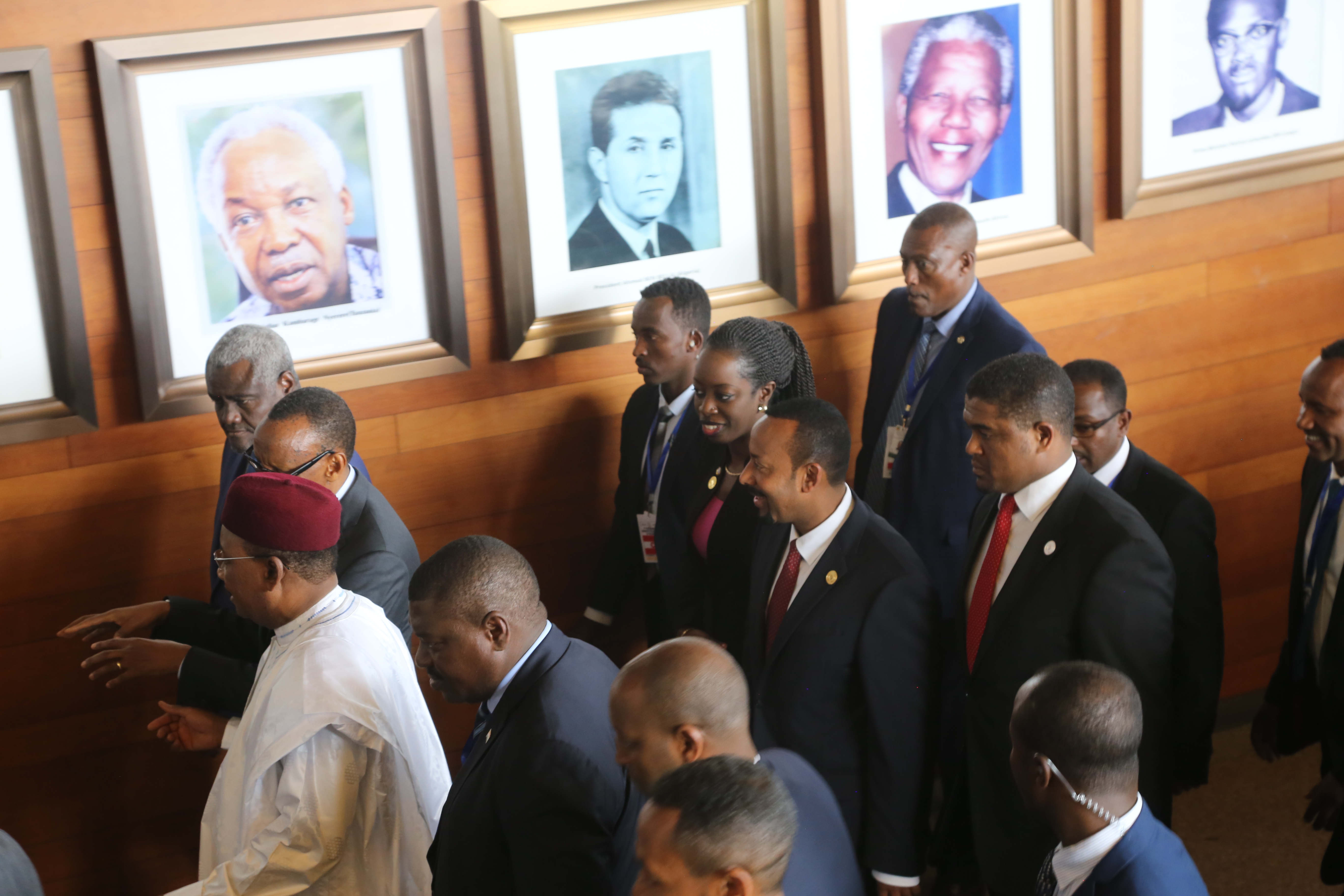
Fortune News | Nov 21,2018
Dec 25 , 2021
By Bjorn Lomborg
This is a particularly urgent challenge right now, given that COVID-19 and the response to the pandemic have made things even harder for some of the poorest countries. Economies have been damaged and poverty is increasing after decades of decline; health resources and global support have been redirected to the pandemic; hunger is on the rise; schools have shut leaving kids learning from home or not at all.
The Sustainable Development Goals (SGDs) try to offer a blueprint for helping solve these challenges. They were set by the United Nations in 2015, offering a list of 169 development targets that must be reached to transform the planet, covering everything from reducing poverty and increasing prosperity, to protecting the planet, advancing peace, and improving health and education.
But having a list of 169 priorities essentially means having no priorities at all. The UN development agenda tries to be all things to all people but then fails to focus attention on the areas where donors, philanthropists or ordinary individuals could achieve the most good.
Core targets like the eradication of infant mortality, ensuring basic learning or achieving opportunities to get out of poverty, are placed on an equal footing with peripheral targets that promote "sustainable tourism" and education on how to have "lifestyles in harmony with nature".
Of course, our natural inclination is to combat every ill. But if we are serious about doing good in the world, we need to focus on the areas where we have sound investments that transform lives.
That means making tough choices. An eye-watering sum has been spent by rich countries during COVID-19, and the effectiveness of much of this spending is dubious at best. The COP26 conference recently focused our attention on climate change, but—especially for the world's poorest who still experience energy poverty - also showed that many available policies remain too expensive and inefficient.
Fortunately, there is a smarter way to do good. The Copenhagen Consensus [where the author is a president] works with world-class economists and uses sophisticated algorithms and the best available data to compare alternate strategies, globally and in different countries. This ensures we can identify how much benefit to society can be achieved with every dollar spent, and also highlight effective approaches that deserve more attention.
Consider tuberculosis, which kills more people than HIV and malaria combined. Even before the pandemic, it received just five percent of health development spending for the world's poorest. (We can only imagine that figure has decreased even further). Yet, a decade of research for Copenhagen Consensus by top experts has shown that each dollar spent testing for and treating tuberculosis delivers some of the most phenomenal returns across all areas in the world.
TB is especially insidious because it mostly hits young adults in their prime, just as they establish families and join the workforce. India has the most TB in the world and our research for several Indian states shows improving detection and treatment can generate huge benefits for society. Put into monetary terms, every dollar spent produces social returns of more than 100 dollars.
Or take the example of combating malnutrition and hunger. Malnutrition in children will shape their entire life prospects, so astoundingly cheap investments made today in better nutrition can lead to better education and more productive adult lives. In Ghana and Malawi, for example, our research shows this approach can cost as little as five dollars per mother and yet save lives and transform lifelong prospects, so that each dollar spent delivers 36 dollars of social returns.
At this time of the year, many of us reflect on our goodwill and fortune while considering those who are less fortunate. In the twelve months ahead, our resolution should not just be to focus on helping more but especially to help in the most effective ways possible.
PUBLISHED ON
Dec 25,2021 [ VOL
22 , NO
1130]


Fortune News | Nov 21,2018

Viewpoints | Jun 11,2022

Radar | Jul 21,2024

Fortune News | Jun 20,2020

Radar | Nov 12,2022

Radar | Nov 27,2018

Radar | Mar 07,2020

Radar | Dec 02,2023

View From Arada | Dec 24,2022

Radar | Dec 19,2018

Photo Gallery | 180320 Views | May 06,2019

Photo Gallery | 170517 Views | Apr 26,2019

Photo Gallery | 161549 Views | Oct 06,2021

My Opinion | 137274 Views | Aug 14,2021

Dec 22 , 2024 . By TIZITA SHEWAFERAW
Charged with transforming colossal state-owned enterprises into modern and competitiv...

Aug 18 , 2024 . By AKSAH ITALO
Although predictable Yonas Zerihun's job in the ride-hailing service is not immune to...

Jul 28 , 2024 . By TIZITA SHEWAFERAW
Unhabitual, perhaps too many, Samuel Gebreyohannes, 38, used to occasionally enjoy a couple of beers at breakfast. However, he recently swit...

Jul 13 , 2024 . By AKSAH ITALO
Investors who rely on tractors, trucks, and field vehicles for commuting, transporting commodities, and f...

Nov 1 , 2025
The National Bank of Ethiopia (NBE) issued a statement two weeks ago that appeared to...

Oct 25 , 2025
The regulatory machinery is on overdrive. In only two years, no fewer than 35 new pro...

Oct 18 , 2025
The political establishment, notably the ruling party and its top brass, has become p...

Oct 11 , 2025
Ladislas Farago, a roving Associated Press (AP) correspondent, arrived in Ethiopia in...

Nov 2 , 2025
The National Bank of Ethiopia (NBE) has scrapped the credit-growth ceiling that had s...

Nov 2 , 2025 . By SURAFEL MULUGETA
The burgeoning data mining industry is struggling with mounting concerns following th...

Nov 2 , 2025 . By YITBAREK GETACHEW
Berhan Bank has chosen a different route in its pursuit of a new headquarters, opting for a transitional building instea...

Nov 2 , 2025 . By BEZAWIT HULUAGER
Nib International Bank S.C. has found itself at the epicentre of a severe governance...